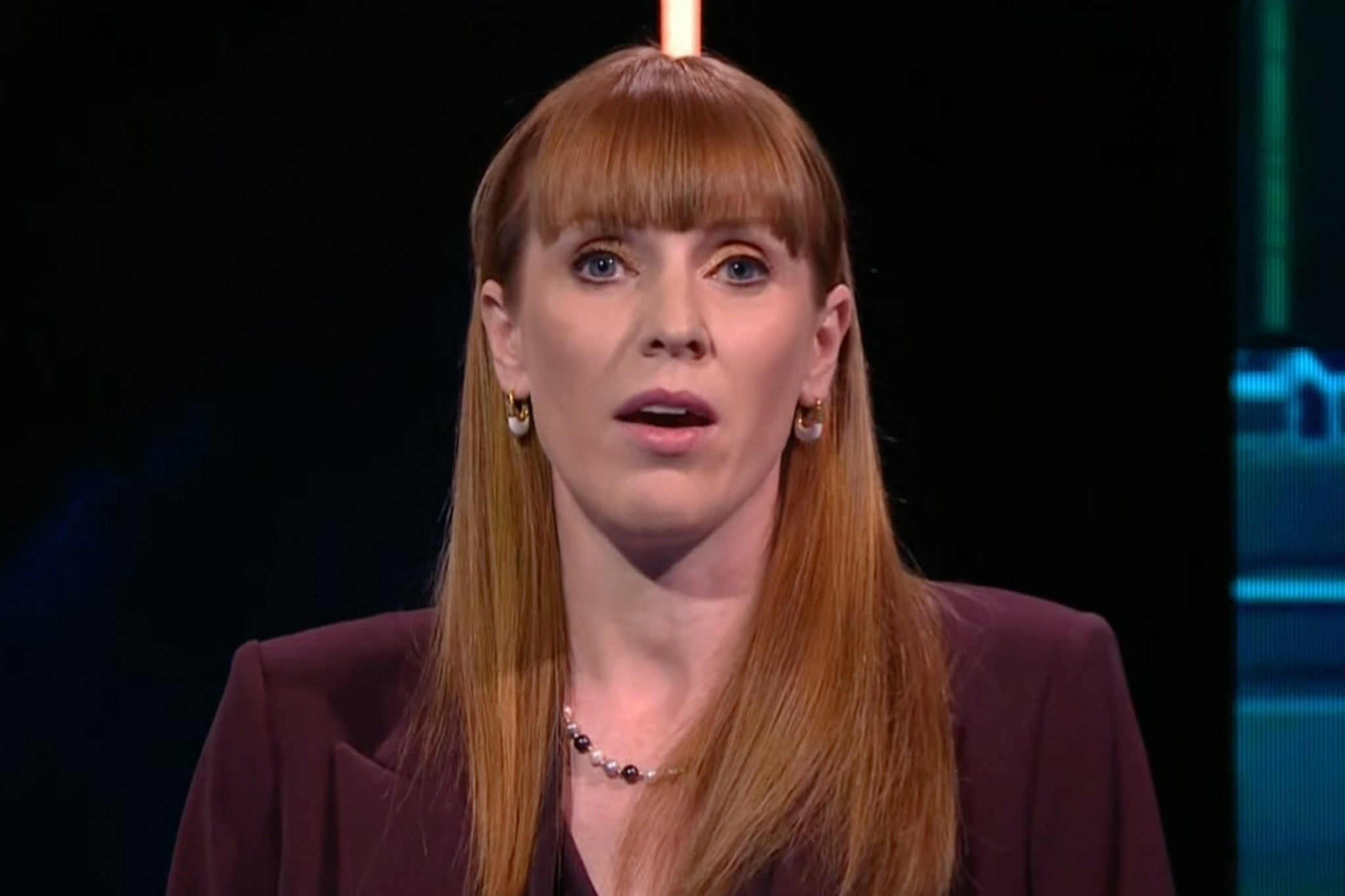Angela Rayner dominated the debate as if Labour was already in government
The second seven-way TV showdown saw the transfer of power far advanced, writes John Rentoul – particularly when it came to Penny Mordaunt and the deputy leader of the Labour Party


The deputy Labour leader, in imperial maroon, dominated ITV’s debate as if she was already in government. The deputy prime minister looked at Penny Mordaunt, the leader of the opposition, and told her “it will have to be Labour that fixes the NHS again”, as if she was already doing it.
When Angela Rayner said, “We are not going to be able to tax our way out of this”, Mordaunt slipped her tenses into the period after 4 July: “That’s exactly what you’re going to do.”
It was as if they were confronting each other in the House of Commons – from the opposite benches that they occupied in the last parliament – in the early days of a Labour government.
Rayner spoke carefully, as if she were a minister. Her words carried more weight than anyone else’s on the seven-person panel, because power has already shifted. Mordaunt besieged her, haranguing and attacking, as if she was trying to disrupt the new government. It didn’t help that her criticism of Rayner on immigration was, “You’ve had 14 years to come up with a plan”, as if it was Labour’s record that was under discussion.
Rayner dismissed the assault with a regal wave of her hand. “You’ve had 14 years and net migration has gone up,” she said.
Rayner spoke with the authority of a party that everyone thinks is going to win by a landslide. She was definite. No, her government would “never rejoin the EU or the single market”, she said. She had a sideswipe at the Scottish National Party: “We respect the result of referendums, which I know the SNP never do.”
But she was forceful in defending a Labour government’s more controversial policies. She argued for using the private sector to bring down waiting lists in the NHS “as a public service”. And she explained that her government would not lift the two-child limit on benefits because “we will not do unfunded spending commitments”.
Even Nigel Farage thought that it was a good idea to lift the two-child limit because “we should be encouraging people to have families”. But Rayner stuck firmly to collective cabinet responsibility for a policy with which, as Stephen Flynn, the SNP representative, probably accurately suggested, she did not personally agree.
Overall, the debate was similar to the same line-up on the BBC last week, except that Rayner’s position at the end of the row made her look as if she were the government and everyone else was the opposition.
The TV audience would probably have thought that Farage “won” the debate, because he has the easy job of saying outrageous things without any responsibility, but they probably thought that Rayner came second, as she did in YouGov’s poll last week, because she defended her party’s strong position with some force.
When Carla Denyer asked her why she was so timid, because she wasn’t proposing a £170bn-a-year tax increase as the Greens were, Rayner scoffed: “I’ve never been called timid in my life.”
And Mordaunt, although she repeatedly accused Rayner of having hidden tax plans, sounded oddly hesitant, as if she were a shadow minister criticising a Labour government’s Budget. In a few weeks’ time, and assuming Mordaunt holds her seat, that may be exactly what she will be doing.
Join our commenting forum
Join thought-provoking conversations, follow other Independent readers and see their replies
Comments
Bookmark popover
Removed from bookmarks